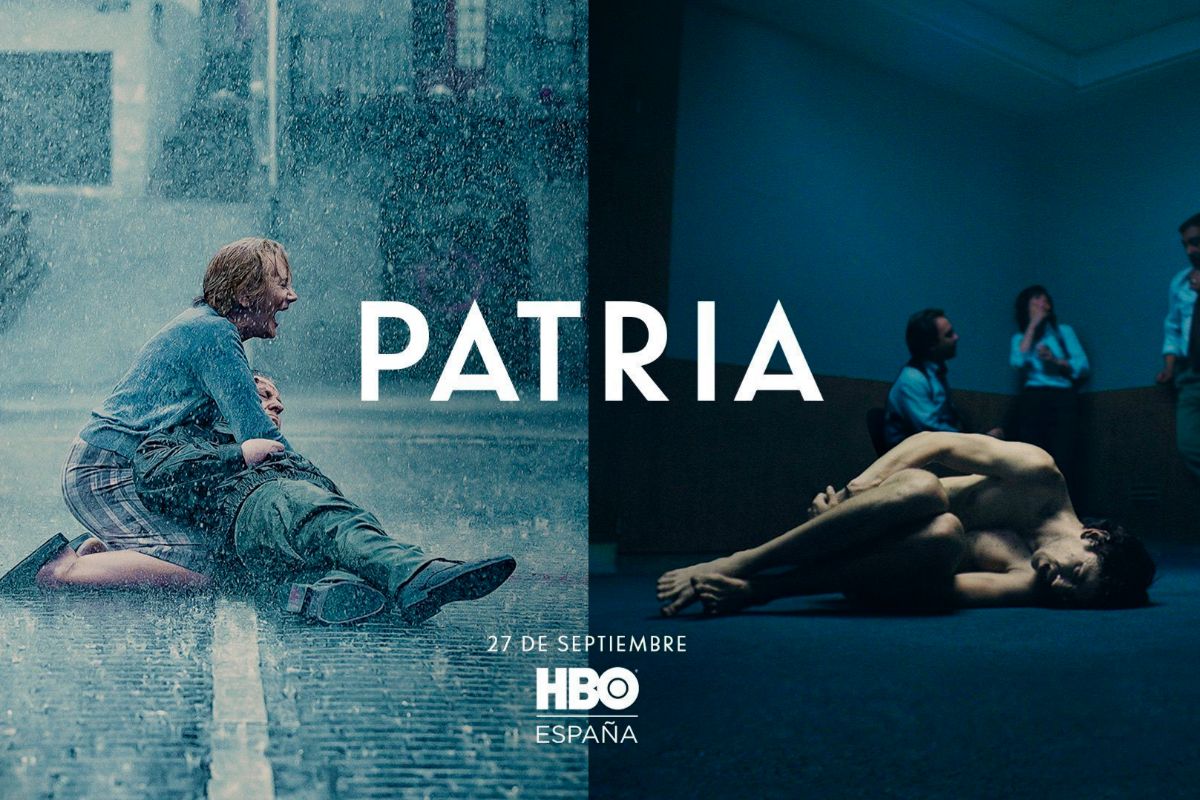Series.Fernando Aramburu: "The Patria cartel is a mistake, a marketing strategy that I do not share"
Controversy. Rain of criticism of HBO for the 'Patria' poster that shows an ETA victim and a tortured ETA member
And in the end, the story is a poster.
It was not an ordinary story, nor is the poster.
History is that of more than half a century of violence that shook the foundations and bowels of a country.
The poster, in keeping with the scope of what is claimed to be proclaimed, takes over the entire main corner of the emblematic artery of the capital of the country in question.
And so that there is no doubt, a legend is added to the poster: "We are all part of this story."
The boast is one that does not go unnoticed, so whoever places it cannot be deceived: it will elicit, to the maximum extent, how many reactions it is likely to produce.
There is, of course, a problem of principle: everything starts from a novel, which peers into the great story through a particular peephole, that of perspective, sensitivity and the talent of its author, who chooses to show a mosaic tile, a piece of the great argument.
The book speaks, with value and details previously eluded - hence its success - of some fragments of pain, leaving others out.
And in turn, that book has been the object of an even greater concreteness: it has been translated into an audiovisual script, which selects only a part of all the images that the reading calls for, those that the person who writes and produces the television artifact prefers to shoot, in a -a frame, a light, an interpretation, a wardrobe, some shots- which in turn leads to a supplementary dimensioning of the gaze and, therefore, of the narrative.
What is told and what is not told, and the intention behind it.
The poster, to support the huge statement with which they are going to present it to the public's scrutiny, has only that material, the result of successive distillations -and mutilations-.
It is an endeavor doomed to create controversy, and probably to failure.
It's not going to make us all feel included in it, as the sign that adorns it bet.
And it is not going to achieve it because it is impossible for it to do so, because in its final rendering it contains so many choices - debatable, ostensible and close to one part of the pain, moving away from another - that dissent is guaranteed.
This is not how you want to move everyone.
A poster is worth as much for what it reveals as for what it only leaves a glimpse of.
What it reveals is very clear: in its left half you can see a naked man, a striking yet stylized shape, illuminated like the unappealable anatomies of a Caravaggio.
He is a resplendent victim, who highlights with his light not only his pain but also the cruelty of the person who has inflicted it on him, perfectly visible and recognizable beings in the background that weighs like the first.
In the right half of the poster, on the other hand, you can see a blurred figure fallen on the ground, an amorphous human bundle over which a woman cries, both veiled by the gray atmosphere of a rainy day.
Of those who exert such violence there is no trace.
The man could just as well have been knocked down by lightning struck during the storm.
It is what there is: the poster artist has composed his work with the images that the television series that he is trying to advertise gave him, which in turn has extracted his violence and those who suffer it from the repertoire that the novel offers.
In the end, what we see is the fruit of a chain of decisions, which are not innocent, which cannot be denied artistic legitimacy - each artist looks at what they want - but which can naturally be questioned and above all not shared, or be rejected on the bias they propose.
No, we are not all in this story, in this poster in which someone has tried to summarize it.
Neither in what she sees nor in how she sees it.
In order not to tire the reader who has come this far, among the many omitted images are those of the children who died, those of the faces of those who agreed to kill them.
Without them, this is one more story, with its eagerness and its purpose.
According to the criteria of The Trust Project
Know more
culture
literature
Series Homeland is Homeland
WHAT! TBO
In depth Miguel Delibes, living and writing in unison
See links of interest
Last News
English translator
TV programming
Quixote
Work calendar
Daily horoscope
Santander League Standings
League schedule
Movies TV
Topics
Stage 8, live: Cazères-Sur-Garonne-Loudenvielle

